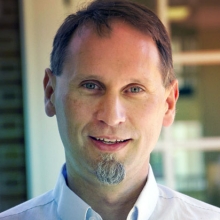Crowdsourcing Research Primer
In crowdsourced research, resources are combined across researchers to conduct studies that could not be accomplished on their own.
“Crowdsourcing flips research planning from ‘what is the best we can do with the resources we have to investigate our question,’ to ‘what is the best way to investigate our question, so that we can decide what resources to recruit.” (Uhlmann et al., 2019, p. 7).
Crowdsourcing research is new to special education research, but in other fields, it has been around for decades. Many aspects of research can be crowdsourced, such as deciding what ideas to research, analyzing data, and conducting peer review (Uhlmann et al., 2019). The most common use of crowdsourcing is regarding data collection, in which many researchers collect data, resulting in much larger and diverse samples of study participants. Examples of crowdsourced data collection outside of special education include:
- Citizen data collectors: Fields such as astronomy and geology utilize volunteers to collect data that researchers would never be able to collect on their own. Many of these projects and opportunities to become data collectors are compiled on the federal government citizen science website.
- Psychological Science Accelerator: The Psych Accelerator is a network of over 1,000 research labs, across more than 70 countries, conducting large-scale studies on topics such as gendered prejudice and stereotype threat.
Conducting crowdsourced research, especially involving crowdsourcing data collection, in special education has many potential uses such as:
- Implementing large scale observational studies so we can better understand how students with disabilities are provided services across the country
- Validating evidence-based practices using nationally representative student samples
- Enabling adequately powered group studies with low-incidence populations to be conducted
- Dramatically increasing the number of direct and conceptual replications so we can efficiently determine what interventions work for who, under what conditions (Coyne et al., 2016).
Ultimately, we envision crowdsourcing will democratize the research enterprise by enabling more and diverse researchers to be involved in large-scale research studies involving large and diverse participant samples that ask and answer critical research questions aimed at improving services for children with disabilities. By facilitating crowdsourcing of data collection across many researchers, we hope the Special Education Research Accelerator (SERA) will play a core role in democratizing the research enterprise in our chosen field — special education.

William J. Therrien, Ph.D., BCBA
Co-Principal Investigator
William J. Therrien, Ph.D., BCBA, is a Professor in Special Education at UVA. He is an expert in designing and evaluating academic programming for students with disabilities, particularly in science and reading. Along with co-directing CASPER, Dr. Therrien co-edits Exceptional Children, the flagship journal in special education, and is Research in Practice Director for UVA’s Supporting Transformative Autism Research (STAR) initiative. Therrien assists Cook with developing infrastructure and supports for SERA, conducting the pilot study and assessing the usability and feasibility of using SERA to conduct future replication pilot studies.

